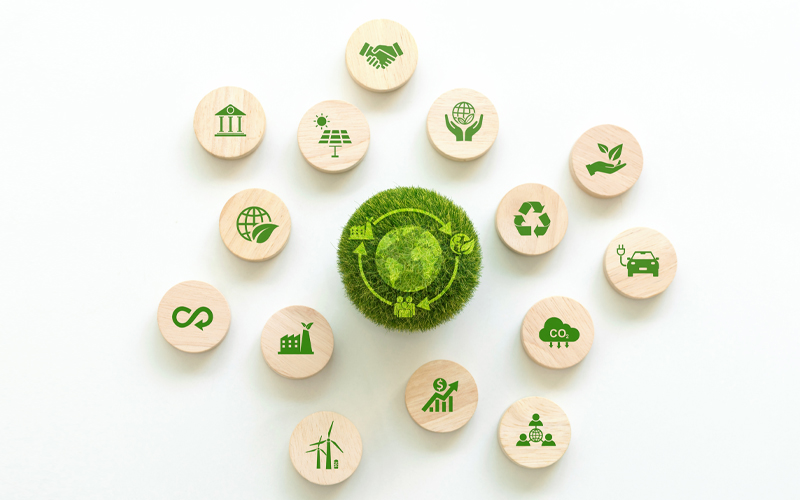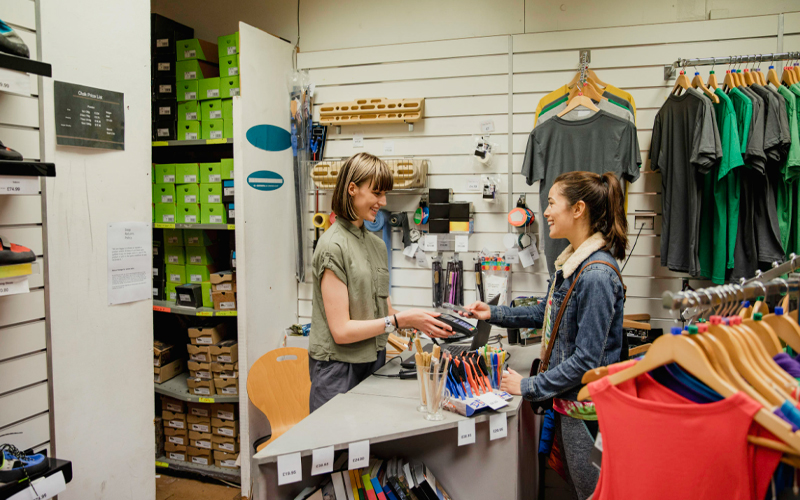As we stand at the crossroads of the 21st century, change is reshaping industries worldwide. Sustainability has evolved from being a mere trend to becoming an essential consideration for businesses across various sectors. The Consumer Packaged Goods sector, in particular, is at the forefront of this shift. Consumer perceptions of products and the global response to environmental and social issues are driving the CPG industry to prioritise sustainability beyond its current buzz. In today's fiercely competitive landscape, sustainability is not just an option but a necessity for the CPG sector, transcending profit-focused priorities.
The Business Case for Sustainability in CPG
Consumer preferences are shifting, and sustainability is now at the forefront of their minds. They’re not just seeking products; they’re seeking values. CPG companies that prioritise sustainability stand to gain a loyal and growing customer base. It’s the new definition of efficiency and effectiveness in business. It’s about optimising processes for both profit and the planet. Embracing sustainability can bolster a CPG company’s brand and reputation. Consumers are more likely to trust and support businesses that share their values. Beyond the intangible benefits, there are tangible advantages as well. Sustainable practices often lead to cost savings by reducing resource consumption, waste, and energy usage. These savings can be reinvested in product innovation or passed on to customers, making your products more attractive in the market.
Outdoor apparel company Patagonia ran a bold campaign in 2011 with the headline “Don’t Buy This Jacket” on a black Friday advertisement. The message was a call to action for consumers to think twice about their purchases and consider the environmental impact. Patagonia emphasised its commitment to sustainability by encouraging customers to repair, reuse, and recycle their products. This campaign not only garnered attention but also reinforced Patagonia’s image as a responsible and eco-conscious brand.
Environmental Impact of CPG Companies
The rapid acceleration of consumption is resulting in rising levels of waste. Over 90% of all materials extracted are wasted and only 8.6% make it back to our economy. The CPG industry, like any other, leaves an environmental footprint. From the raw materials sourced to the packaging used, the lifecycle of CPG products can impact the planet significantly. Packaging is a focal point for sustainability efforts in the CPG industry. Companies should seek to reduce packaging waste, adopt recyclable or biodegradable materials, and explore innovative packaging designs.
Additionally, energy-efficient production processes and responsible sourcing of raw materials can minimise resource depletion. Sustainable initiatives and designing for a circular economy can help CPG companies reduce their environmental footprint. Unilever, for example, has introduced a ‘buy once, refill for life’ product – deodorant in a refillable stainless steel case. Initiatives like these can feed the emerging circular economy.
Social Responsibility and CPG
Sustainability extends beyond the environment; it encompasses social responsibility too. Many CPG companies operate complex supply chains that involve various stakeholders worldwide. Ensuring fair labour practices, ethical sourcing, and supply chain transparency is not just ethically responsible behaviour but is also good for business. Companies that neglect social responsibility are at the risk of damaging their reputations as well as facing potential legal consequences.
By integrating sustainability into their operations, CPG companies can champion ethical business practices. This involves conducting thorough due diligence on suppliers, ensuring fair wages and safe working conditions for employees, and actively engaging with the communities they operate in. Socially responsible CPG companies build trust with consumers, which can translate into customer loyalty and increased sales. Advancements in technology have enabled CPG companies to track and optimise their supply chains for sustainability. Technologies like blockchain, IoT, and data analytics play a crucial role in enhancing transparency and traceability.
Regulatory and Market Trends
The regulatory landscape is evolving rapidly to address environmental and social concerns. Ignoring sustainability can lead to legal challenges, fines, and disruptions to operations. By proactively embracing sustainability, CPG companies can stay ahead of regulations and position themselves as leaders in responsible business practices. Moreover, market trends are shifting towards sustainability. Consumers are increasingly seeking products that align with their values. CPG companies that adapt their offerings to meet these demands gain a competitive edge. Coca-Cola introduced its ‘World Without Waste’ initiative to address plastic waste. They communicate their commitment to sustainability through a combination of marketing campaigns, partnerships and visible efforts like designing recyclable bottles.
Every CPG company can and should embrace sustainability, not as a choice, but as a fundamental part of their strategy to achieve success.
*For organisations on the digital transformation journey, agility is key in responding to a rapidly changing technology and business landscape. Now more than ever, it is crucial to deliver and exceed on organisational expectations with a robust digital mindset backed by innovation. Enabling businesses to sense, learn, respond, and evolve like a living organism, will be imperative for business excellence going forward. A comprehensive, yet modular suite of services is doing exactly that. Equipping organisations with intuitive decision-making automatically at scale, actionable insights based on real-time solutions, anytime/anywhere experience, and in-depth data visibility across functions leading to hyper-productivity, Live Enterprise is building connected organisations that are innovating collaboratively for the future.







